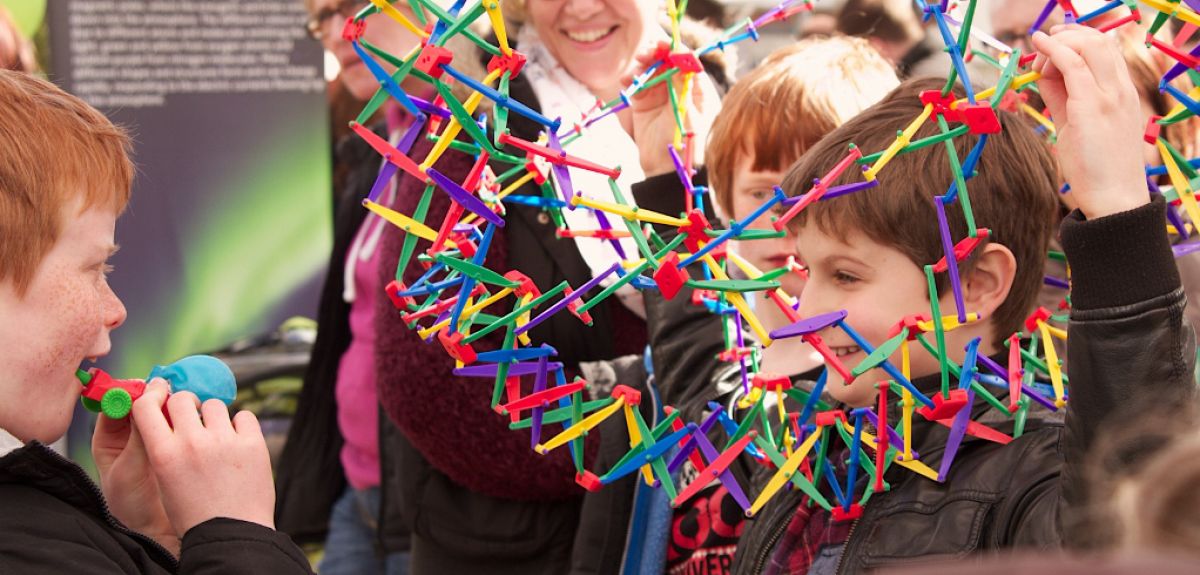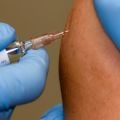
Image courtesy of Vivacious Mel Photography
Inspiring science festival returns
Oxford University researchers are helping everyone to have a go at science at this year's Oxfordshire Science Festival (4-22 March 2015).
The Festival kicks off later this week (4 March, 7 pm) with a talk by Professor Frank Close from the Department of Physics. Professor Close, winner of the Michael Faraday prize, will be talking about the subject of his recent book: Bruno Pontecorvo, an Italian physicist who worked at Britain’s atomic labs in Harwell, but who may have also led a double life as a Soviet spy.
The festival also sees the return of family favourites such as the free Wow! How? science fair at the Museum of Natural History and the Pitt Rivers museum (14 March, 10 am-4 pm), featuring over 30 hands-on activities to explore.
Throughout the festival, visitors will have the chance to look behind the usually closed doors of many of the University's research labs: the Oxford Biomedical Centre open weeks (6-21 March) put visitors in the control room of an ultra-high field MRI scanner as they see the human brain in action (16 March, 6 and 7pm), and a behind-the-scenes tour of the Acute Vascular Imaging Centre includes a talk on how researchers track tell-tale signs of heart attacks and strokes (10 March, 4pm).
The festival also overlaps with the International Brain Awareness Week (16-22 March 2015), and many events explore the workings of the human brain. The 'Inside the Brain' event at the Museum of the History of Science (20-22 March) gets visitors up close and personal with Oxford neuroscientist, to try some fun and interesting experiments for themselves.
Earlier in the month, the Cognitive Neuropsychology Centre opens its doors with demonstrations and presentations about how to keep mentally fit every day (8 March, 10am-4pm).
For those interested in where art meets science, neuroscientist Jan Schnupp and music researcher Eric Clarke team up with an Oxford wind 'OU' to show you how your ears and brain dance along to music (18 March, 6pm-8.15 pm, Holywell music room).
Scientists and artists also get together to explore how dancers and scientists can collaborate, and how dance and science can inspire each other (8 March).
Other highlights include a whole day of talks by researchers developing vaccines for diseases such as Ebola (6 March, 9.30am-3.30pm, Oxford University Museum of Natural History), and an exploration of how our skeleton is constantly being broken down and rebuilt to adapt to our lives (16 March, 7pm-8pm)
You can find full details of all Oxfordshire Science Festival events here.
 New study estimates NHS England spends 3% of its primary and secondary care budget on the health impacts of temperature
New study estimates NHS England spends 3% of its primary and secondary care budget on the health impacts of temperature
 International collaboration launches largest-ever therapeutics trial for patients hospitalised with dengue
International collaboration launches largest-ever therapeutics trial for patients hospitalised with dengue
 Oxford-built multi-agent assistant for cancer care to be piloted in collaboration with Microsoft
Oxford-built multi-agent assistant for cancer care to be piloted in collaboration with Microsoft
 World's first Phase II Nipah virus vaccine trial launch
World's first Phase II Nipah virus vaccine trial launch